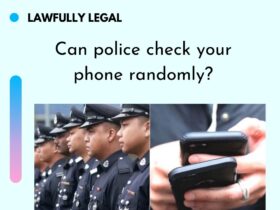Falsely accused? Here is what you can do. Being in a country ruled by coded laws, many cases of law are misused and a false case is set up against a person. The law which is misused the most is Anti Dowry Act and the sexual harassment prevention law.
Although there are genuine cases taking place, it is also misused a lot. So, the question here is, if you are falsely accused of doing something, can you sue for a false accusation?
The short answer is yes, you can sue someone for false accusations they have made against you. They can be sued for Perjury, False claim, and false accusations. But the devil lies in the details. There are usually 3 types of ending to a case when someone is accused of something: –
- Proven beyond a reasonable doubt.
- Not proven beyond a reasonable doubt.
- False prosecution case.
:max_bytes(150000):strip_icc()/improper-conduct-for-the-office-187078360-5b84816d46e0fb0050697ff5-5bd796e846e0fb0083580644.jpg)
You can only sue someone if the court reaches to the 3rd verdict, i.e. you have been falsely implicated in the case and no proof or witness exists that says otherwise.
What happens in most cases is that the prosecutor proves the accused guilty beyond a reasonable doubt or it couldn’t prove it beyond a reasonable doubt. In the latter case, you still cannot sue someone for false prosecution because the court didn’t acquit you on the basis that you had not committed the crime, you were freed because the prosecutor failed to provide enough witnesses or proof to convict you of the charge.
Always remember that Indian law works on the principle that 100 criminals can be let go but 1 innocent shouldn’t be punished. So, unless the court is very sure that you have committed the crime, you will not be convicted.
You can only sue in cases when the court was sure that there is no way that you may have committed the crime you are being accused of. If it’s not clear, you can neither sue for false accusation nor you can be prosecuted.
This is the main reason why most women walk free even after accusing someone falsely. They somehow make their case but cannot prove it beyond a reasonable doubt.
Meaning of some legal terms used: –
- Perjury – Lying in a court of law.
- Prosecutor – A person who institutes legal proceedings against someone.
- Prosecution – Conduction of legal proceedings against an individual.
- Acquit– Free someone of a legal charge.
- Convict– A person who is guilty of a criminal offense.
Recent Post










Leave a Reply
View Comments